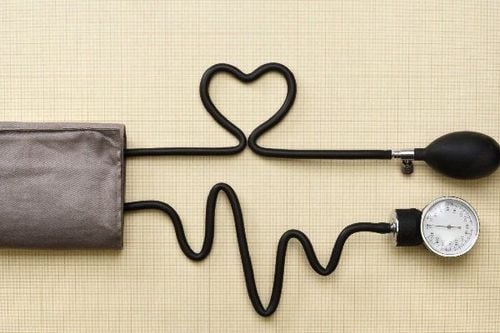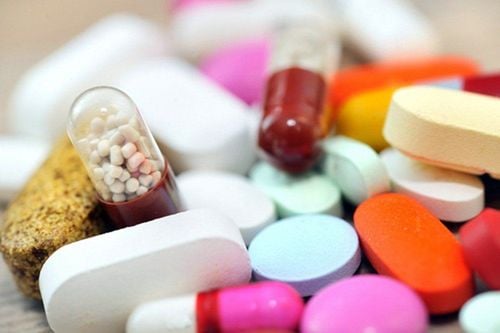This is an automatically translated article.
Caffeine is one of the most commonly used stimulants today and is responsible for the addictive properties of coffee. Caffeine is found in products such as coffee, soda and some other drinks... Let's learn more about this stimulant through the article below.
1. What is caffeine?
Caffeine is a natural stimulant commonly found in coffee, cocoa or tea trees. This substance works by stimulating the brain and central nervous system, keeping us awake and preventing fatigue, besides, caffeine also brings many negative effects to users' health.2. Harmful effects of caffeine
2.1 Addictive Caffeine Like other addictive substances, caffeine can become an addictive substance. That's because regular, sustained caffeine consumption can lead to changes in your brain's chemistry.
For example, brain cells may start producing more adenosine receptors as a way of compensating those blocked by caffeine. In turn, a higher intake of receptors requires you to consume a higher amount of caffeine to achieve the same amount for the same "caffeine fix". This explains why regular coffee drinkers will become increasingly addicted to coffee.

Caffeine dẫn đến thay đổi hóa học trong bộ não nên có khả năng gây nghiện
On the other hand, suddenly cutting off the caffeine supply causes the brain to have a lot of receptors for adenosine to bind to. This can create a very tired feeling. Regular coffee drinkers are at risk of experiencing brain changes and becoming dependent on caffeine.
Currently, experts are not sure how long it takes for your body and brain to adapt to a daily dose of caffeine.
However, experts say that, if you detox from caffeine, some symptoms such as lack of concentration, sleepiness, irritability may appear as little as 12-24 hours after the last dose of caffeine. This condition can last up to 9 days.
Alternatively, these signs could also be the result of reducing your daily caffeine intake to just 100 mg - the equivalent of one cup of coffee a day. The severity of symptoms usually peaks within the first two days and subsides thereafter.
2.2 Caffeine causes insomnia The body can absorb and eliminate caffeine quickly. They will be processed mainly through the liver, some caffeine will stay in the body for several hours. For most coffee users, having a cup or two in the morning doesn't interfere with sleep at night.
However, consuming caffeine late in the day can interfere with your sleep. Most people won't experience sleep disturbances if they don't consume caffeine at least 6 hours before bedtime. Everyone's sensitivity will vary, depending on your metabolism and how much caffeine you regularly receive. People who are more sensitive to caffeine may not only experience insomnia but also experience the side effects of caffeine causing stress and digestive upset.

Caffeine có thể gây căng thẳng mất ngủ nếu sử dụng vào cuối ngày
2.3 Caffeine affects pregnancy Many studies show that consuming a moderate amount of caffeine (one cup of coffee per day) does not affect pregnant women.
However, if you regularly consume a higher amount of caffeine than 200mg, it can put pregnant women at higher risk of miscarriage, and can cause some effects such as:
Make it difficult to conceive Miscarriage Birth defects Premature birth For pregnant women and those trying to get pregnant should consume less than 200mg of caffeine per day. In addition, caffeine also causes a number of negative health effects. Caffeine increases the risk of osteoporosis and cardiovascular disease. A moderate daily amount of caffeine - about 300mg, or three cups of coffee, is unlikely to be harmful for most healthy adults. However, some people are more susceptible to its effects, including those with high blood pressure or who are older.
Caffeine-induced osteoporosis: At high levels (more than 744 milligrams/day), caffeine can increase the risk of urinary calcium and magnesium loss. But recent studies show it doesn't increase the risk of bone loss, especially if your body is getting enough calcium. You can make up for the calcium lost from drinking one cup of coffee by adding two tablespoons of milk. Older adults may be more sensitive to the effects of caffeine on calcium metabolism.
Cardiovascular disease and caffeine: Temporarily mild increases in heart rate and blood pressure are common in people who are sensitive to caffeine.

Caffeine có thể làm ảnh hưởng đến nhịp tim và huyết áp
3. Benefits of caffeine
Caffeine has a number of health benefits that have been proven by studies. A study out of France even showed a slower decline in cognitive ability in women who consumed caffeine.
Other benefits may include headache relief. Some patients with asthma also benefit from caffeine.
Also, unlike most other addictive substances, consuming caffeinated coffee can provide certain health benefits, including:
Improve brain function: Drink coffee regularly Regular use can improve alertness. It may also reduce the risk of Alzheimer's and Parkinson's Diseases Improve mood: the risk of depression and suicide is lower in people who regularly use coffee or caffeine. Boost Your Metabolism: Daily caffeine consumption can increase your metabolism by up to 11% and fat burning by up to 13% Enhance exercise performance: Caffeine can boost your metabolism Endure fatigue, improve exercise performance and make your workouts feel easier Fight heart disease and diabetes: Regular intake of caffeinated beverages like coffee and tea can reduce increased risk of heart disease and type 2 diabetes in some people. Although caffeine has certain benefits, consuming high amounts of caffeine can cause many side effects. More research is needed to definitively confirm both its benefits and potential risks.
For more information, please contact Vinmec Hospitals and clinics nationwide
Please dial HOTLINE for more information or register for an appointment HERE. Download MyVinmec app to make appointments faster and to manage your bookings easily.
Reference source: webmd.com; healthline.comMORE:
Caffeine: How much is too much? Effects of Caffeine (coffee) during pregnancy Can coffee trigger a heart attack?













